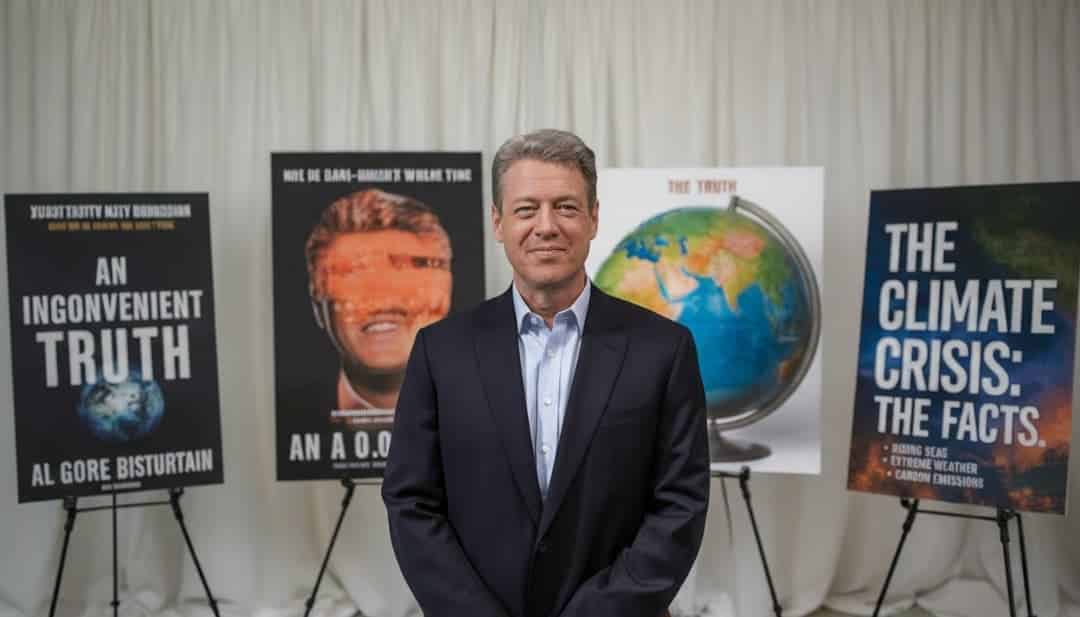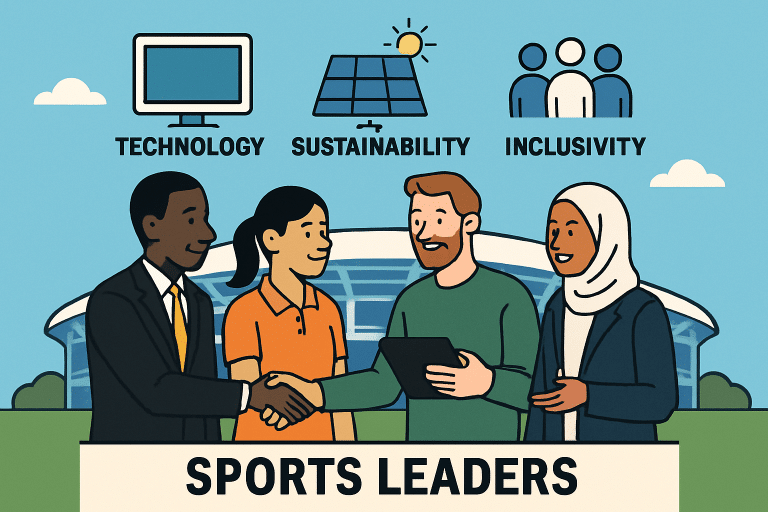Environmental, social, and governance (ESG) duties are no longer just things that should be in a sustainability report; they are now things that businesses must do. But for many businesses, ESG goals are still just words and not things they actually do. When systems are spread out, it’s challenging to keep track of progress, hold people accountable, and report correctly. This takes time, makes people do things twice, and suggests that important changes can’t be made.
The best project management tools help companies close this gap by making ESG goals a normal part of their operations. Lark is a platform that helps individuals work together to attain goals for social, environmental, and good governance. Companies may get from desiring something to getting it done by being clear, taking responsibility, and working together.
Lark Base: Structuring ESG data for long-term clarity
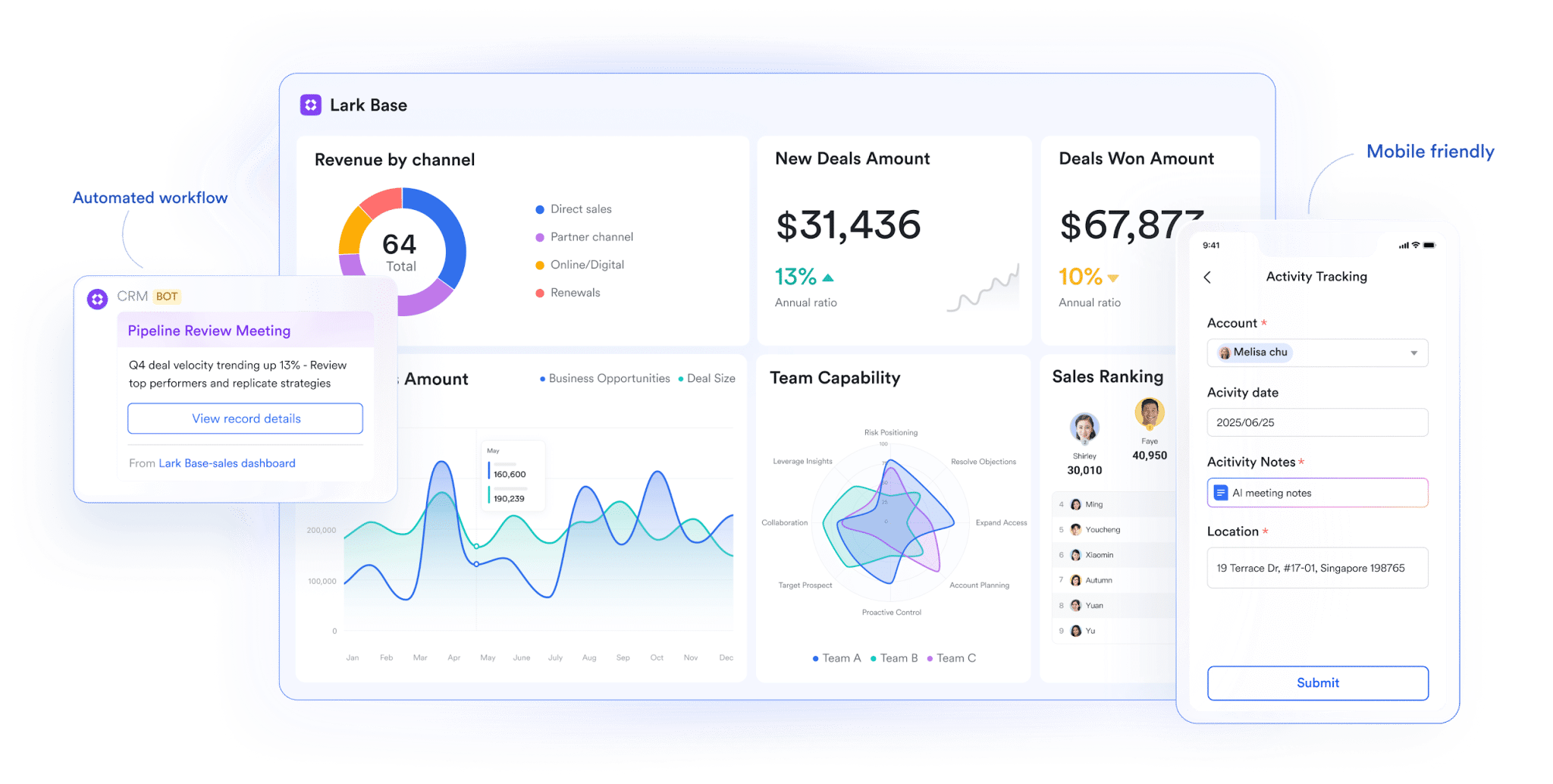
Before you can start any ESG plan, you need to have good data. Without a central system, data on carbon emissions, supplier compliance, or diversity programs gets buried in emails and spreadsheets. This makes it hard to recognize things that are bad for both reporting and doing things. Lark Base solves this challenge by putting all ESG documentation, workflows, and projects in one place where they can be changed.
With the same features as a CRM app, Base is reliable to help operations teams maintain track of compliance activities, sales teams keep track of what customers want, and sustainability teams keep track of what suppliers are doing. Finance gives information about costs and benefits, which combines data so that everyone can see the same progress.
Dashboards make ESG data useful, and when policies, initiatives, and approvals are all linked together, they make sense of each other. Teams can use a grid, a kanban board, or a Gantt chart to keep track of important tasks like hiring more diverse individuals or lowering emissions in a way that works best for them. Base makes sure that ESG goals are clear and can be acted on by putting them in areas where people can easily see them.
Lark Messenger: Creating accountability through transparent dialogue
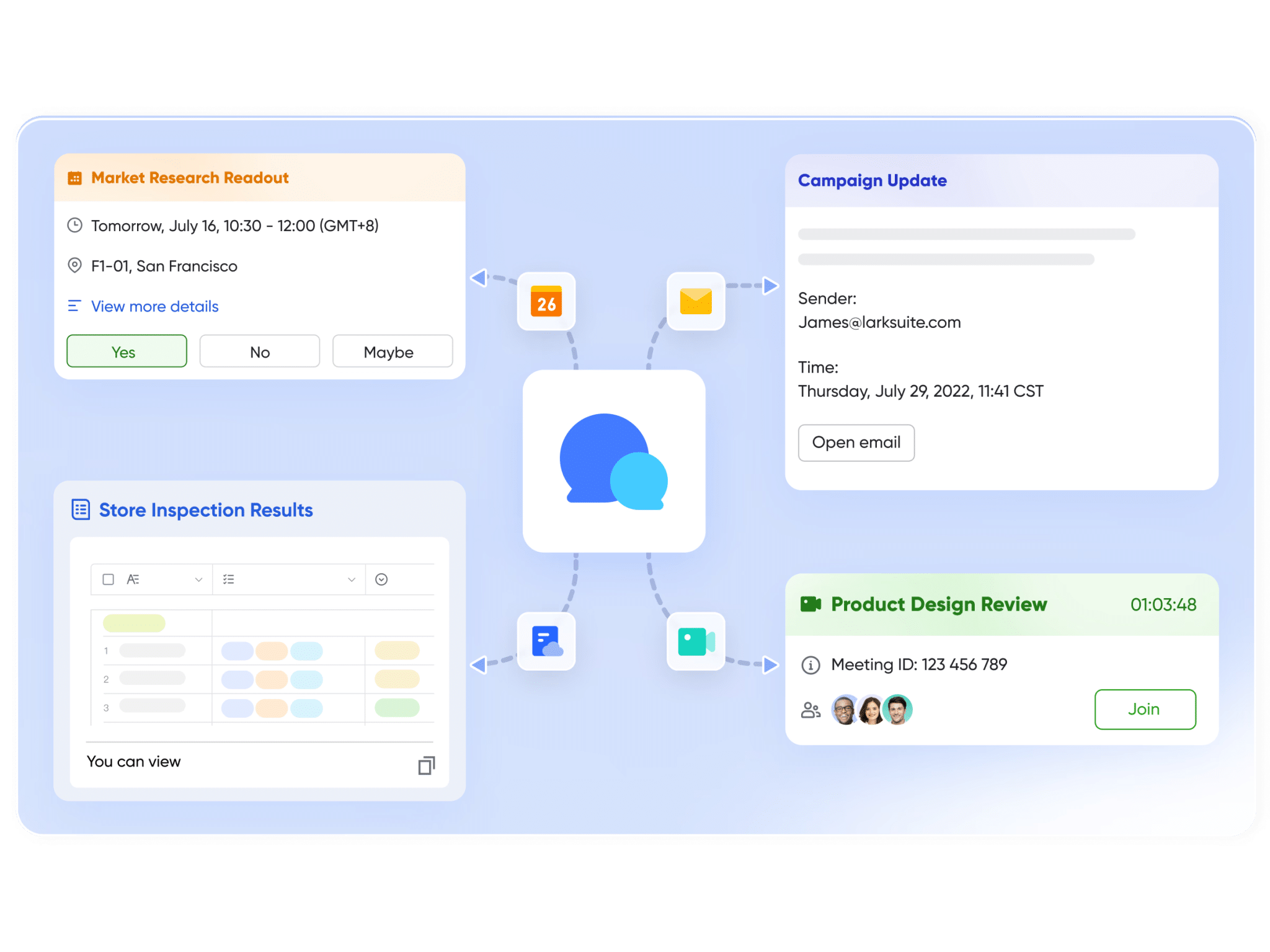
When you work on ESG initiatives with colleagues from other teams, you need to be explicit about what you mean. People could sometimes become lost in email threads or on separate platforms when they talk about sustainability or compliance. Employees have a hard time knowing what to do first because of this. Lark Messenger fixes this by making communication simple, open to everyone, and linked to action right away.
Threaded talks can help keep ESG sessions on track by focusing on certain projects, including programs to cut down on waste or training for diversity. Pinned updates help people remember the most critical things they need to do. Translation built into the app makes it possible for teams from different countries to communicate with the right individuals immediately, and mentions make it easy for everyone to join in.
Messenger connects right to Base and Tasks, so ESG exchanges can lead to stuff that can be logged. For example, if someone talks about a problem with a supplier on Messenger, it might be turned into a task straight away with clear ownership. Messenger makes sure that ESG isn’t just talked about; it’s lived out every day by keeping conversations open and actionable.
Lark Calendar: Aligning sustainability goals with timelines
ESG projects need to stick to a plan and not change over time. But even the best plans go apart when there aren’t any clear deadlines to meet. Lark Calendar helps companies make sure that their social, environmental, and governance goals are in line with schedules that workers can trust.
Shared calendars display important dates including audit dates, training sessions, and deadlines for sustainability reports. Automatic time zone conversion makes it easier for teams from all around the world to work together, and reminders help everyone remember their deadlines. You can give meetings greater meaning by connecting them to reports, base records, or policy papers.
Calendar makes sure that ESG goals aren’t just things we want to do in the future; they are part of how the organization works every day by placing deadlines right into daily planning.
Lark Approval: Driving fairness and compliance in decisions
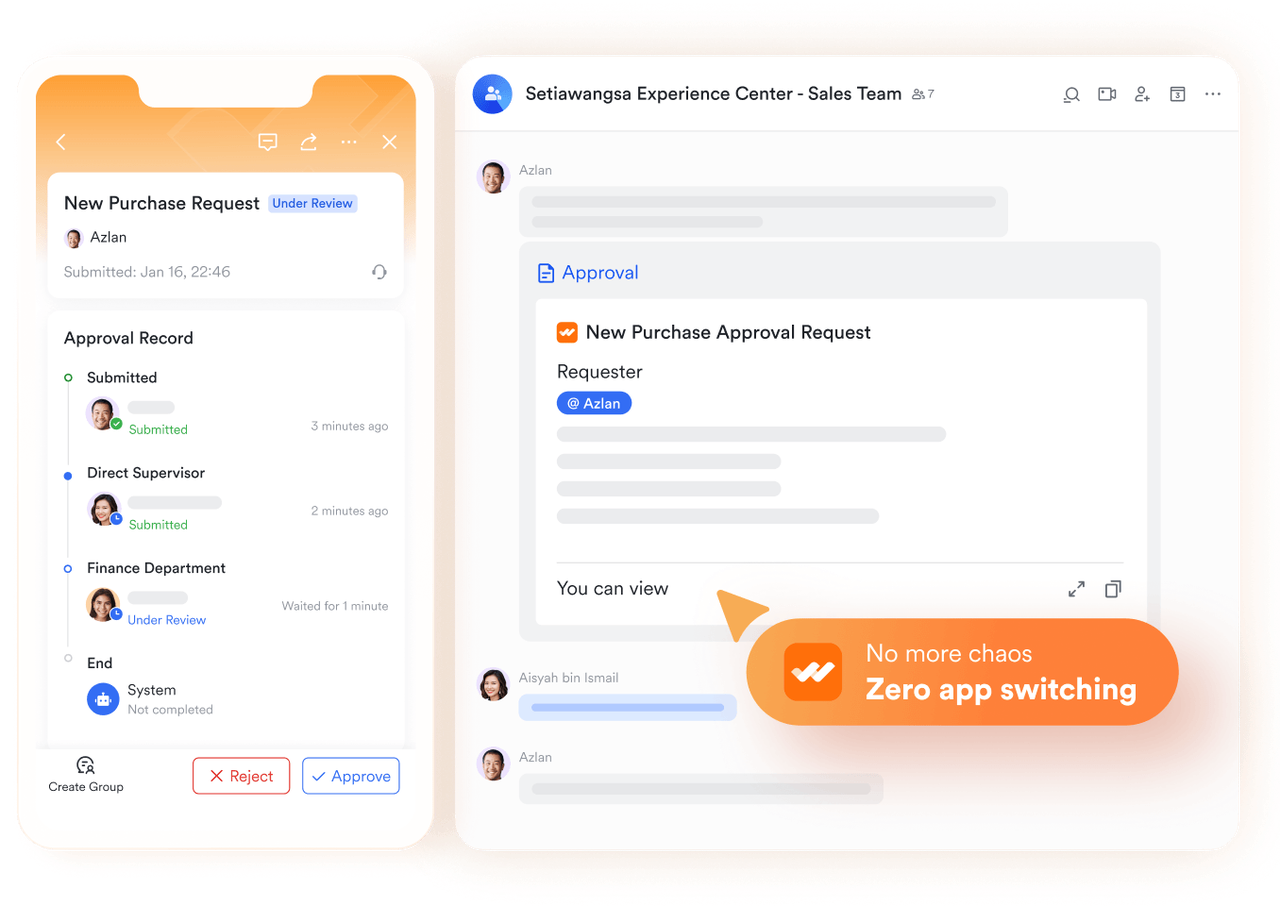
A good government is one that is fair and makes people responsible for their actions. If there aren’t clear guidelines for making judgments, ESG activities could be hindered by delays or bias. Lark Approval gives evaluations, approvals, and audits the framework they need to be open and reliable.
Standardized request forms assist in ensuring that all corporate approvals linked to ESG, such changes to the budget, certifications for suppliers, or changes to policies, follow the same guidelines. In clean interfaces, Approval shows leaders real-time visibility into open requests, while role-based permissions ensure important compliance data remains secure. Logs maintain a track of choices in a way that lets you hold people responsible.
Approval’s best feature is its automated workflow that sends ESG requests to the correct people right away. Reminders keep things on track, and notifications help things move forward. Approval makes governance a rapid and fair process that fosters trust instead of a long and hard one.
Lark Docs: Turning policies into living, collaborative resources
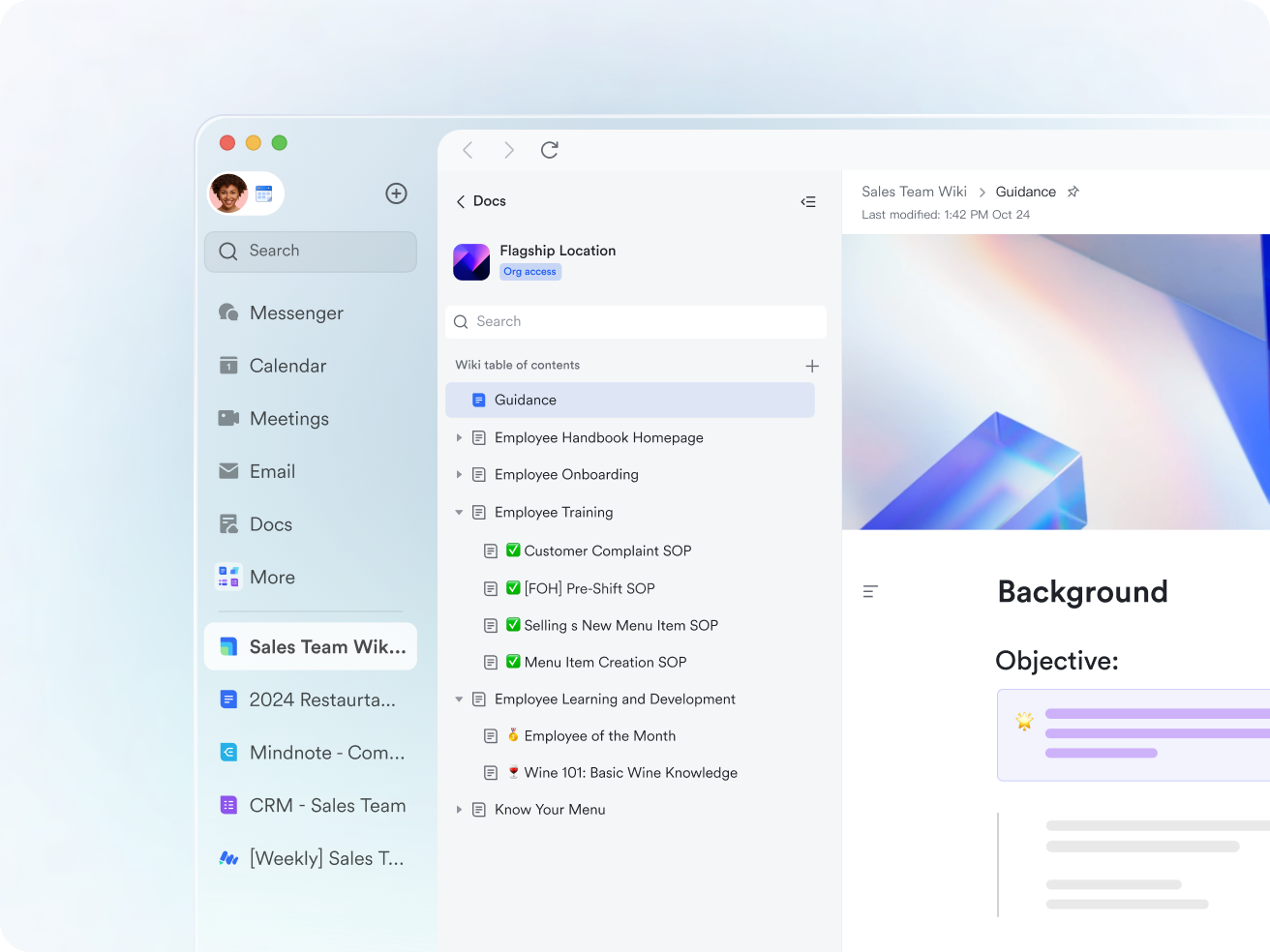
Policies and reports are crucial pieces of ESG, but they can be hard to maintain track of when they don’t change and people stop using them. Lark Docs solves this problem by letting individuals work together on documents that adapt when goals and regulations change.
Teams can work on ESG reports or policy changes at the same time as long as everyone is using the same version. Inline comments let you see what other people think, and version history makes sure that everyone is held accountable. Embedded Sheets or Base records provide real-time performance data right into documents, so you can be confident they are always correct and up to date.
Docs make sure that ESG commitments aren’t just sitting around in separate files. They are tools that teams can always use, alter, and use to get things done.
Lark Wiki: Preserving ESG knowledge across the organization
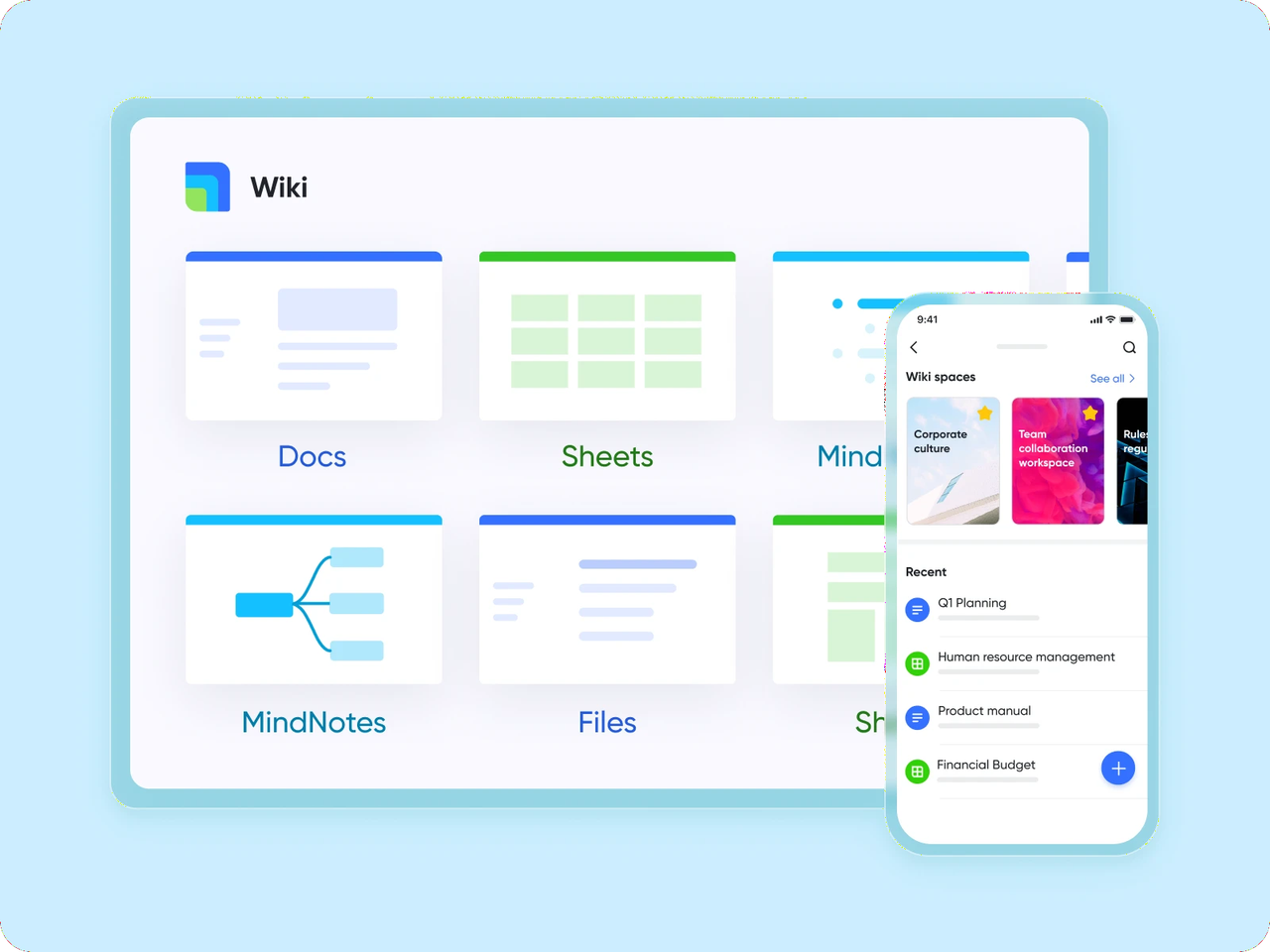
When people don’t share or lose institutional knowledge, efforts to make governance and sustainability better often fail. Lark Wiki fixes this problem by giving all employees a single spot to look for and preserve ESG rules, processes, and best practices.
Wiki keeps track of the rules for using less energy, having a lot of different providers, and getting products in a fair way. These regulations alter right away when things change. You can find what you need with the search functions, and the permissions keep your private information safe. Wiki makes it easy for all new employees to see the ESG guidelines so that they all have the same information.
Wiki stores ESG information in a permanent and easy-to-find way, which helps make sure that everyone in the company is treated fairly and that things stay the same over time.
Conclusion
Ultimately, ESG success implies more than just writing down goals; they need to be part of your daily work. ESG initiatives don’t work together when systems are broken up. This makes things take longer and makes individuals less trustworthy. Unified platforms like Lark make ESG a reality by making sure that everyone knows what the goals are, keeps track of them, communicates about them, and does something about them.
Base structures ESG data with CRM-like flexibility, Messenger turns conversation into responsibility, Calendar aligns milestones with predictable timelines, Approval speeds up fair decisions with automated workflow, Docs turn policies into living resources, and Wiki keeps institutional knowledge for the long term. These technologies make sure that ESG goals are not only set, but also met.
Leaders need to realize that ESG promises only mean something if they are kept. Companies can go from making promises to making progress by using connected digital technologies. This means that businesses may measure things like social responsibility, sustainability, and governance every day.



























